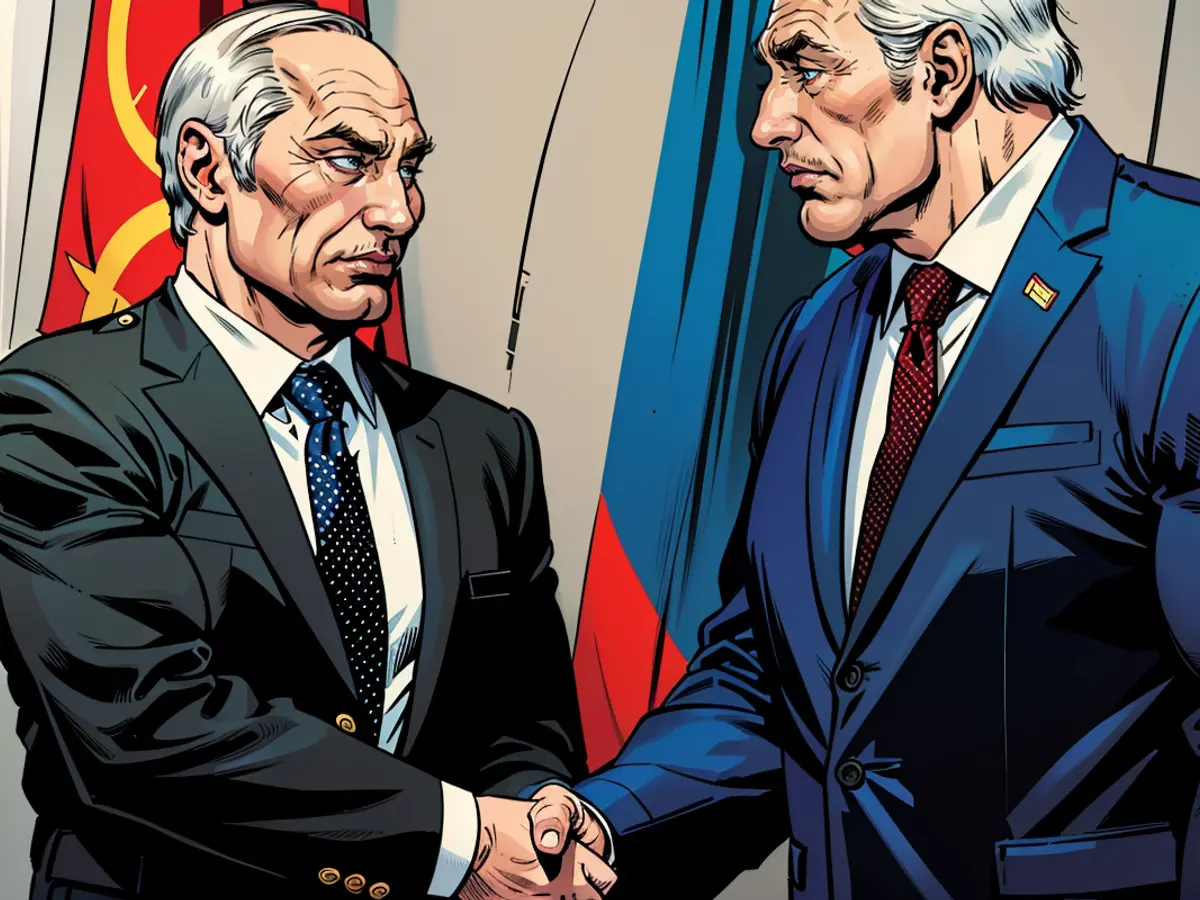EU - Sanctions against Russia's partner Belarus
Germany and some other exporting countries have managed to weaken EU sanction plans against Belarus, Russia's partner country. According to several diplomats in Brussels, an agreement on a comprehensive EU export ban for vehicles could not be reached due to German opposition. Only those that can be militarily used will no longer be allowed to be exported to Belarus in the future. Support for weakening sanctions came from France, according to information from the German Press Agency. There are reportedly exceptions for luxury goods such as leather goods, perfumes, and wines.
Goal of the Sanctions
The Belgian EU Council Presidency had previously announced without providing details that they had informed EU states about new sanctions against Belarus. With them, the main objective was to make it more difficult to bypass existing Russian sanctions, it was said. The sanctions were further strengthened in response to Russia's invasion of Ukraine.
The agreement on the sanctions package was reportedly reached at a meeting of the permanent representatives of the member states at the EU in Brussels. It still needs to be formalized in a written procedure.
Above all, central and eastern European countries such as Poland and the Baltic states had pushed for the same economic sanctions against Belarus as against Russia during the lengthy negotiations. The reason given was not only the Belarusian support for the Russian aggression war against Ukraine, but also the fact that Russia and Belarus are linked by a customs union and goods can flow freely from one country to the other without hindrance.
Statistics on sanctions evasion
Regarding the automotive market, statistics were cited. According to these, the export of vehicles from the EU to Belarus has significantly increased since an export ban to Russia was imposed. This was not due to a greater interest in EU vehicles in Belarus, but rather to sanctions evasion, it was said.
Opponents of further-reaching penalties, however, argued that Belarus is not yet a direct war party and that there should therefore be no complete alignment with the Russian sanctions at this time.
Dispute over exceptions for fertilizers
There was long-standing controversy over possible exceptions to existing sanctions that target trade in fertilizers from Belarus. These should not be affected, it was argued, because the latest analyses show that they do not restrict the fertilizer supply in third countries.
The German government recently also managed to secure concessions during the negotiations on the 14th package of Russian sanctions. The expansion of the so-called "No Russia Clause" for EU exporters, which requires them to contractually prohibit the re-export of certain goods to Russia, was prevented. Critics fear that Russia's military industry will therefore continue to have access to Western goods and technologies for the time being, enabling it to produce weapons for the war in Ukraine.
Belarus is widely isolated in Europe due to its support for Russia's aggression war against Ukraine. Only Hungary maintains close contacts with the country from the EU. Extensive EU sanctions against Belarus have already been imposed. They include export bans on weapons and goods, as well as technologies from the aviation, space, and defense industries. Additionally, approximately four Belarusian banks have been excluded from the Swift financial communications system, and a transaction ban with the Belarusian Central Bank has been decreed.
- Despite Germany's efforts to soften EU sanction plans, only militarily usable vehicles will be prohibited from export to Belarus.
- The EU aims to make it more challenging to bypass Russian sanctions with new sanctions against Belarus, their partner country.
- France, as a partner of Germany, supports weakening sanctions against Belarus, according to the German Press Agency.
- Luxury goods such as leather goods, perfumes, and wines have reportedly been exempted from the EU's planned export ban for Belarus.
- Central and eastern European countries, like Poland and the Baltic states, push for the same economic sanctions against Belarus as against Russia due to their customs union.
- Stats show a surge in EU vehicle exports to Belarus since Russia's export ban, largely due to sanctions evasion.
- Critics argue against complete alignment with Russian sanctions for Belarus as the country is not yet a direct war party.
- The German government successfully prevented the expansion of the 'No Russia Clause' for EU exporters, allowing Russia's military industry to access Western goods and technologies.
- Hungary maintains close ties with Belarus, which is largely isolated in Europe due to its support for Russia's war against Ukraine.
- EU sanctions against Belarus include export bans on weapons, goods, aviation, space, and defense technologies, as well as financial restrictions and bank exclusions.








